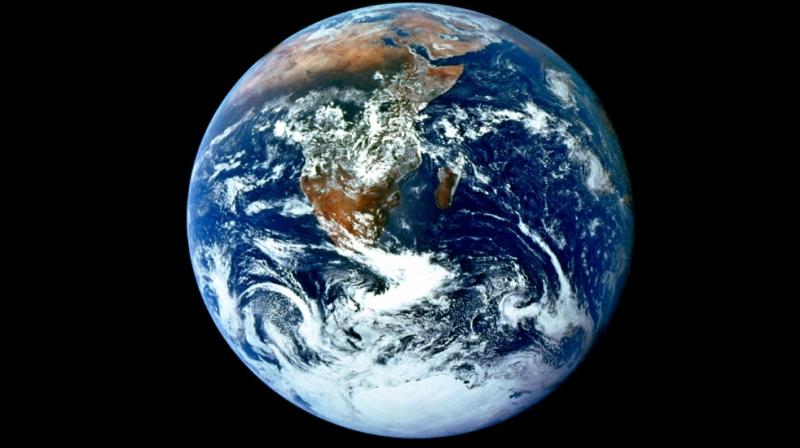Other planets may never be as hospitable as Earth: study

Scientists dealt a blow on July 31 to the quest for organisms inhabiting worlds besides Earth, saying our planet was unusual in its ability to host liquid water -- the key ingredient for life.
It was thought likely that distant worlds orbiting stars similar to our Sun would go through water-rich phases.
This would happen when the young, dim star of an icy, lifeless planet -- such as early Earth -- starts warming, becomes Sun-like, and melts the ice on planets orbiting it at just the right distance -- the so-called "Goldilocks" zone.
Icy orbs in our own Solar System, including Jupiter's moon Europa and Saturn's Enceladus, or "exoplanets" in other star systems, may become habitable in this way, the theory goes.
But a team wrote in the journal Nature Geoscience on July 31 that this was unlikelier than had been imagined.
Jun Yang, of Peking University in China, and a team used climate models to simulate the evolution of icy planets.
Without atmospheric greenhouse gases -- a feature of Earth -- the energy required to thaw an icy planet would be so high that it would transit from frozen to inferno without an intermediate, liveable phase, they found.
"We find that the stellar fluxes that are required to overcome a planet’s initial snowball state are so large that they lead to significant water loss and preclude a habitable planet," the team wrote.
Some icy bodies, they suggested, may therefore never pass through a habitable Earth-like state.
Among these, Europa and Enceladus will likely morph from iceballs into fireballs by the time the Sun reaches it's super-hot red giant phase heat in billions of years from now, said the team.
Earth was an example of an icy world that thawed just enough, some 600-800 million years ago, thanks to planet-warming atmospheric greenhouse gases emitted by volcanic eruptions during its snowball phase, the team said.
This meant that less solar heat would have been required for the ice to melt, enabling our planet to achieve a temperate middle ground.
Greenhouse gases, which are naturally present in the atmosphere but also released by humans burning coal, oil and gas, are what has kept our planet warm enough for humans, animals and plants to inhabit.
But humankind's addition of mainly CO2 since the Industrial Revolution has caused the atmosphere to retain ever more solar heat, to a point that scientists say we are harming Earth's perfectly-balanced climate beyond repair.

